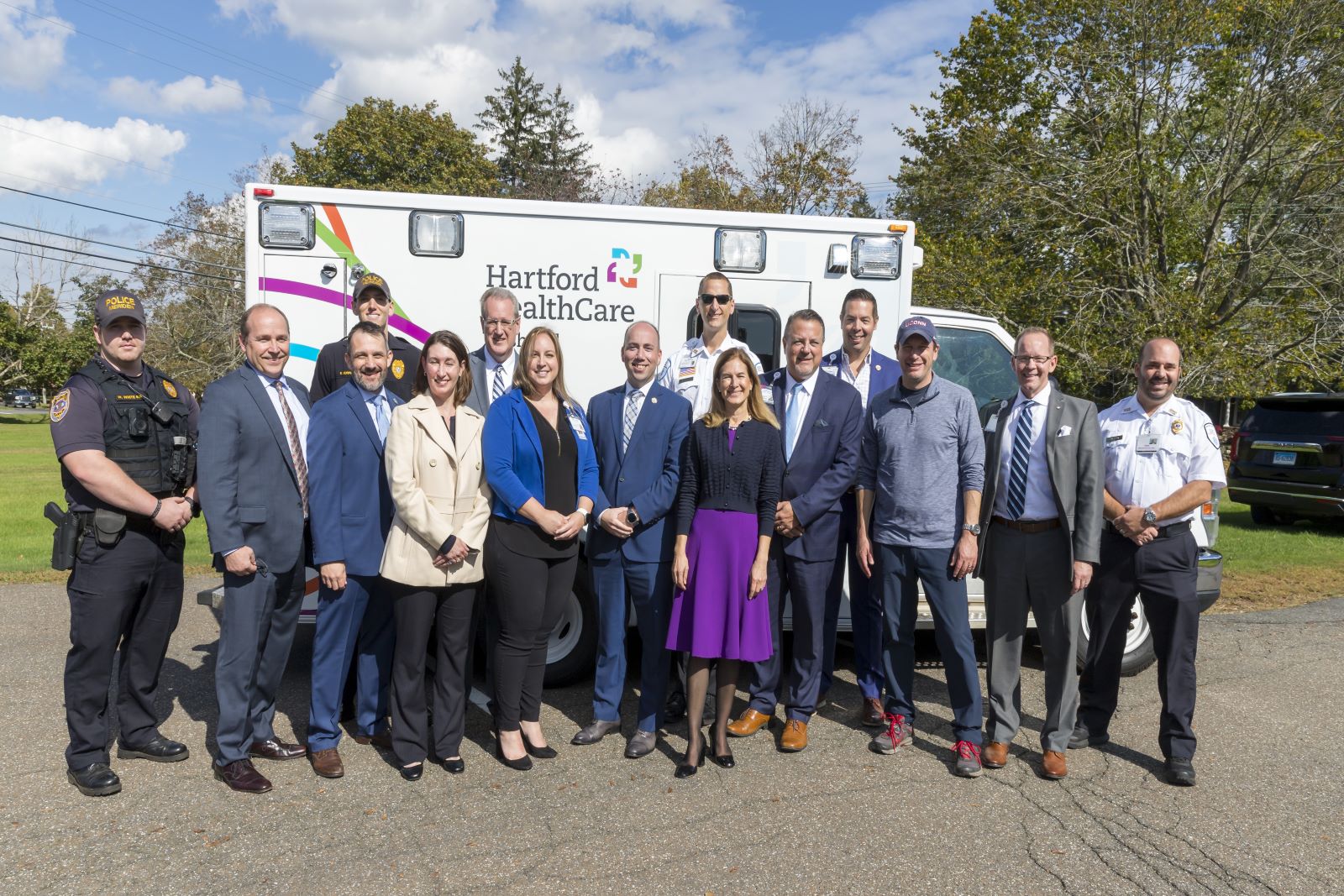<< Back
Meriden Secures $2 Million Federal Grant to Combat Opioid Epidemic

October 19, 2023
A $2 million federal grant and the donation of an ambulance means the Meriden Opioid Referral for Recovery (MORR) program will continue to address the opioid crisis in the city.
“We are so proud and have worked very hard coordinating efforts between our team at Rushford and our community partners to impact what is going on in our community,” says James O’Dea, PhD, senior vice president, Hartford HealthCare Behavioral Health Network.
Meriden earned one of 28 nationwide grants from the U.S. Department of Health and Human Services, Substance Abuse and Mental Health Services Administration.
The grant will help continue funding MORR, an important partnership between Rushford and the City of Meriden Police, Fire and Health departments and Hunter’s EMS. The partnership works to increase prevention and awareness, provide accessible treatment, and develop a continuum of services for those working toward and maintaining a healthy lifestyle.
“We know the opioid epidemic continues to plague all of our communities and the recent announcement of grant funding for the MORR program will help ensure that so many people receive education, care and treatment,” says Gary Havican, president of MidState Medical Center and The Hospital of Central Connecticut.
The grant comes on the heels of Hunter’s donation of a refurbished ambulance to be used as a Mobile Resource Unit, to bring Rushford’s services into the community for prevention, intervention, education and treatment efforts.
The unit will allow the Rushford crisis team to service multiple neighborhoods and travel to different locations as needs arise and change in real time. It also enables them to provide screenings and brief interventions in the community as well as referrals to mental health, substance use and primary care treatment as needed.
“These special vehicles provide a new and unique way for us to give better access to local services and reach more difficult populations, including those who are not likely to seek traditional healthcare and social services,” says Jessica Matyka, LCSW, clinical director at Rushford.